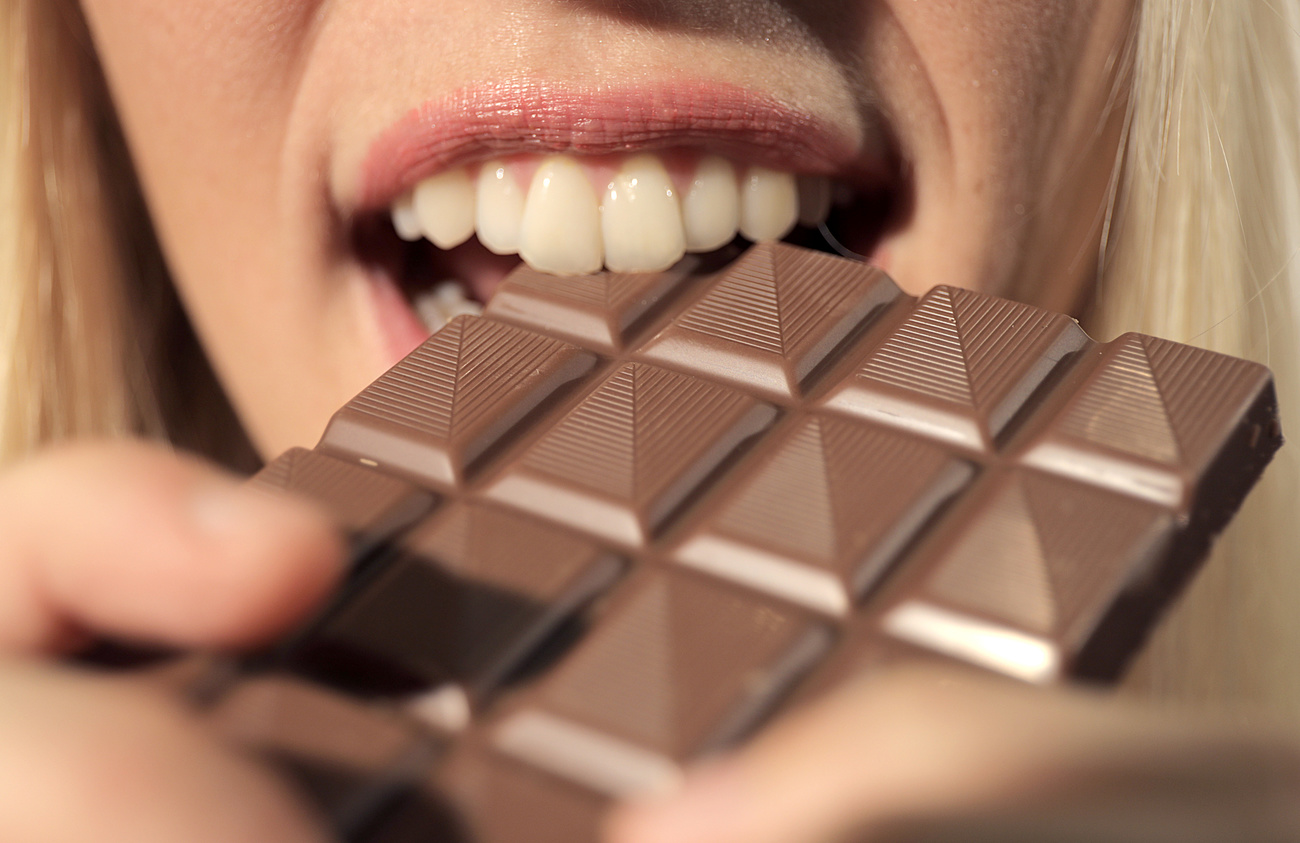
Chocolate abstinence makes the heart grow weaker

Giving up chocolate could be unhealthy. In a study, people who eat little or no chocolate showed poorer cognitive performance, a higher risk of hospitalisation for heart failure and higher overall mortality rate.
The researchers found the most favorable effect when consuming two to six bars of chocolate per week, as stated in the study published in the specialist magazine “Swiss Medical Weekly”.

More
Toxic cocoa beans: how much cadmium is in your chocolate?
The study refers to people with atrial fibrillation. For the study, the researchers used data from a so-called cohort study, for which more than 3,000 patients in Switzerland with atrial fibrillation declared in a questionnaire how much chocolate they eat.
However, at the request of Keystone-SDA, the researchers warn against drawing hasty conclusions from the results. “Our results are about associative and not causal relationships,” said Annina Staber, a doctor at the Triemli Hospital in Zurich and lead author of the study. Although the results could certainly indicate a positive effect, this statement cannot be made with certainty.
The researchers see a possible reason for a positive effect of chocolate on the positive influence on endothelial function by a substance in chocolate. The endothelium is the thinnest layer of cells that lines the inner walls of blood vessels. Good endothelial function ensures that blood vessels remain flexible and dilatable, which in turn regulates blood pressure and can reduce the risk of heart disease.
Chocolate could also reduce oxidative stress. Oxidative stress occurs when there is an imbalance between free radicals and antioxidants in the body. Free radicals can damage cells and tissues and contribute to various diseases. Chocolate contains antioxidants that can help neutralise free radicals.

More
Artificial sweeteners: when ‘zero’ is not the way to go
This news story has been written and carefully fact-checked by an external editorial team. At SWI swissinfo.ch we select the most relevant news for an international audience and use automatic translation tools such as DeepL to translate it into English. Providing you with automatically translated news gives us the time to write more in-depth articles. You can find them here.
If you want to know more about how we work, have a look here, and if you have feedback on this news story please write to english@swissinfo.ch.

In compliance with the JTI standards
More: SWI swissinfo.ch certified by the Journalism Trust Initiative





























You can find an overview of ongoing debates with our journalists here . Please join us!
If you want to start a conversation about a topic raised in this article or want to report factual errors, email us at english@swissinfo.ch.